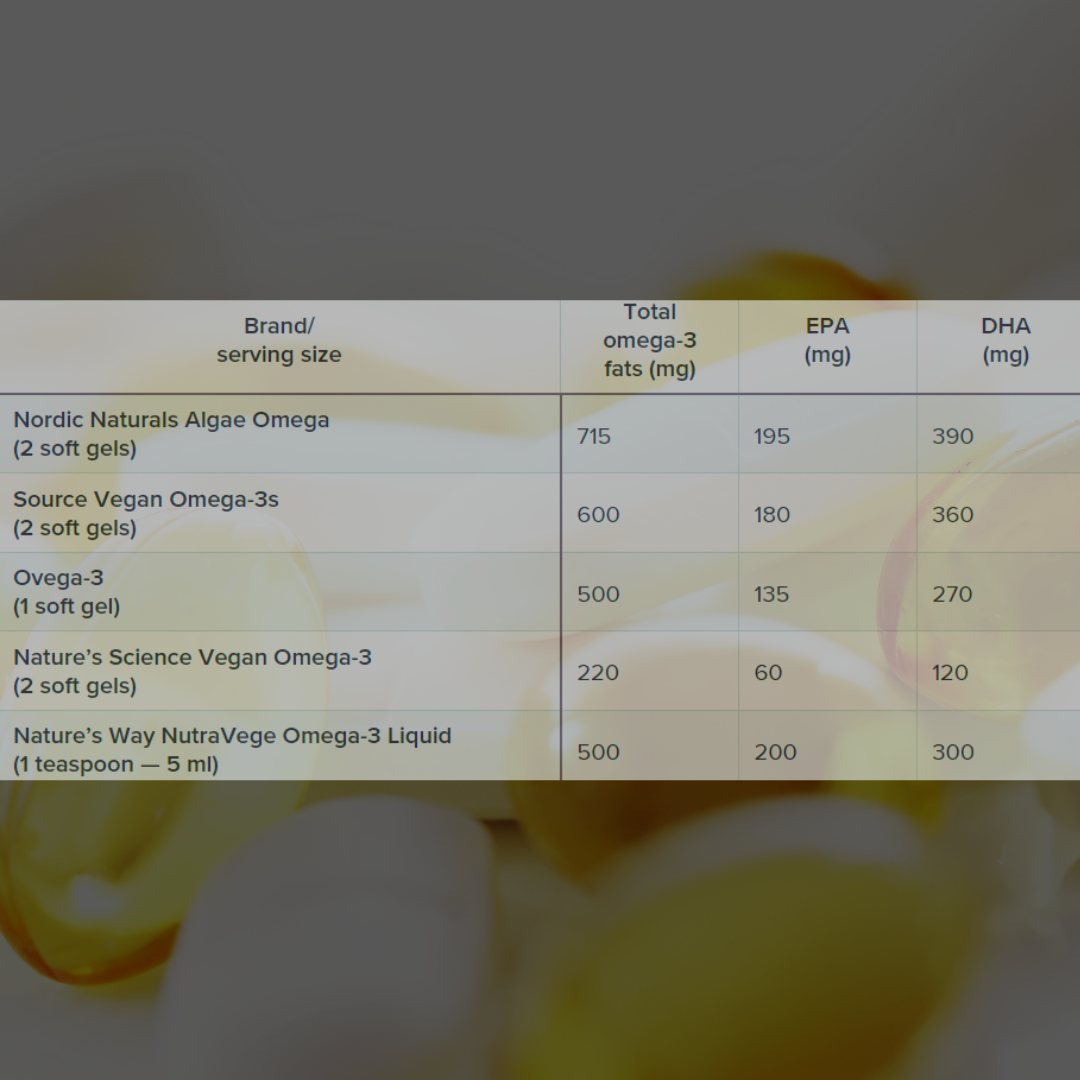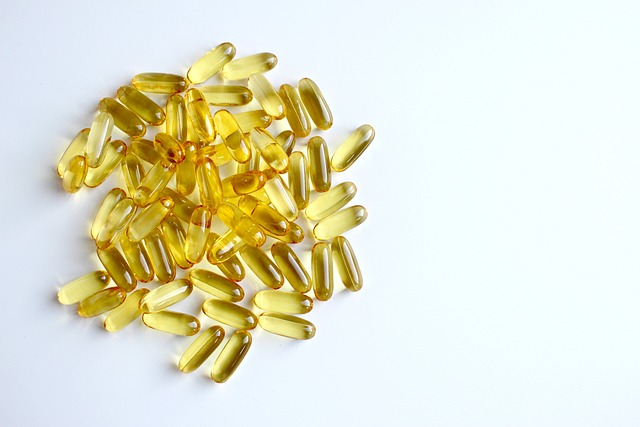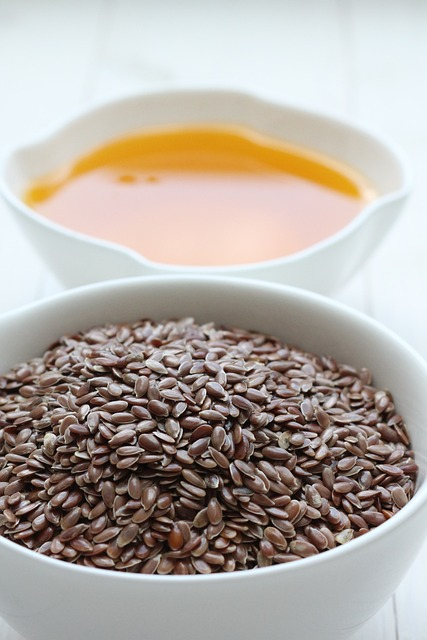Vegan Globetrotter is supported by our audience. When you purchase through one of our links, we may earn a small affiliate commission. As an Amazon Associate I earn from qualifying purchases. Your cost is not affected.
==================
When you hear the word algae, you might picture the greenish stuff that sometimes appears on ponds, right? But guess what? There’s a lot more to it than that!
Did you know some algae are grown in labs for their special oil, chock-full of omega-3 fatty acids? And those omega-3s are awesome for our health, offering all sorts of benefits.
Now, you’ve probably heard about fish oil as a source of omega-3s, but if you’re a vegetarian, algae oil could be a fantastic plant-based alternative for you.
Here’s the cool part: algae isn’t just one thing. It’s a family with around 40,000 species, ranging from tiny single-celled microorganisms to big kelp and seaweed. And you know what they all have in common? They get their energy from sunlight or ultraviolet light and carbon dioxide.
Now, I get it. You might wonder, “What’s the deal with algae oil?” Well, this article’s got you covered. It will spill the beans on everything you need about algae oil – from its nutrients and benefits to the correct dosage and any potential side effects. So, stick around, and let’s dive into the fascinating world of algae oil together.
Nutrients in Algae Oil
Did you know these super cool microalgae species are like omega-3 powerhouses? They’re loaded with eicosapentaenoic acid (EPA) and docosahexaenoic acid (DHA), and we grow them to get their excellent oil!
And get this – in one study, they found that omega-3s in these microalgae are comparable to what you’d find in various omega-3 sources. How cool is that?

But here’s the exciting part: We can crank up the omega-3 levels in these algae by playing around with their exposure to UV light, oxygen, sodium, glucose, and temperature. It’s like giving them a little omega-3 boost!
But that’s not all – this excellent oil also plays a crucial role in providing omega-3s for infant formula, other foods, plant-based vitamins, and omega-3 supplements. Algae oil is the superhero of omega-3 sources, popping up in various products to keep us healthy and happy.
Levels of Omega-3s in Algae Oil
I’ve included information about various commonly used supplements from multiple manufacturers below.

Like other supplements, algae oil supplements can come in different variations regarding the types and amounts of omega-3 fats they contain and the serving sizes. So, when you’re shopping for them, it’s a good idea to check the labels and compare them to find the one that suits your needs best.
But here’s another cool thing: you can also get algae oil as a cooking oil. It’s an excellent option for cooking because it has a neutral flavor and can handle high heat without smoking. So, whether you’re sautéing or doing high-heat roasting, algae oil has your back.
While culinary algae oil is an excellent source of healthy unsaturated fats, it’s essential to know that it doesn’t have any omega-3s. Unfortunately, those beneficial fats are not heat-stable and don’t survive cooking. But no worries, you can still get your omega-3s from other sources like supplements or foods that aren’t heated.
Omega-3s
Omega-3 fatty acids are super essential fats found in plants. Your body can’t make them independently, so you must get them from what you eat. There are a few types of omega-3s, but the main ones researchers study are EPA, DHA, and ALA. ALA is like the parent fatty acid because your body can use it to make EPA and DHA, but it’s inefficient. So, it’s best to ensure you get all three from your diet.

These omega-3s play a significant role in keeping your body in tip-top shape. They’re all about keeping your cell membranes healthy, especially in your eyes and brain, where DHA hangs out.
They’re superheroes that help your body regulate inflammation and support your heart and immune system. So, ensure you get those omega-3s in your diet for all their unique benefits.
Sources
Alright, let’s break it down. ALA, the good stuff, is mostly hanging out in fatty plant foods like flax seeds, chia seeds, walnuts, and oils like canola and soybean.

But here’s the astonishing twist – seaweed and algae also serve up some EPA and DHA action. And guess what? Fish can’t produce these fats independently, so they rely on microalgae for their omega-3 fix. That’s why algae are the real stars behind the omega-3 fats.
Health Benefits
You won’t believe what researchers found. Folks with higher levels of omega-3 fats might have a lower risk of specific health issues.
But here’s the kicker – researchers showed something exciting. They found a significant boost in blood DHA levels of vegetarians.
Support in Heart Health Benefits
Omega-3 supplements are like little heart superheroes. They can help lower your blood pressure and improve blood vessel function. In that case, your risk of heart attack or stroke might decrease.

And guess what? They’re also excellent at reducing those pesky triglyceride levels. This remarkable study used DHA-rich algae oil, and people taking 1,000–1,200 mg daily saw their triglyceride levels drop by up to 25%. Not only that, it even improved their cholesterol levels.
But wait, there’s more! A recent review of clinical trials with over 127,000 people found that taking omega-3 supplements from different marine sources can lower the risk of a heart attack. It decreases the risk of heart disease and even death from these conditions. That’s some severe heart protection right there. So, consider adding those omega-3s to your routine for a happy, healthy heart.
Can Help to Decrease Depression
Here’s something interesting – When people are diagnosed with depression, they tend to have lower levels of EPA and DHA in their blood. But check this out. Many studies involving over 150,000 people discovered that those who eat food with omega-3s have a lower risk of depression.

People with depression who take EPA and DHA supplements often feel better – they notice an improvement in their symptoms. And here’s a little twist – there was this analysis of 35 studies with 6,665 people, and guess what they found? EPA seems to be more effective than DHA for treating depression. So, if you’re dealing with the blues, consider trying those EPA and DHA supplements.
Eye Health Benefits
Here’s some good news if you’ve been dealing with dry eyes or eye fatigue. Taking an omega-3 supplement reduces how quickly your tears evaporate. Say goodbye to those uncomfortable symptoms.

Check this out – Studies found that people who get eye irritation from wearing contacts or spending more than 3 hours a day on the computer got relief when they took 600–1,200 mg of both EPA and DHA together. It’s like a magic fix for both groups.
Omega-3s could also be superheroes for your eyes in other ways. They might help fight age-related macular degeneration (AMD), which can affect vision. Although the research isn’t entirely consistent, a study of nearly 115,000 older adults found that higher dietary intakes of EPA and DHA could prevent or delay intermediate stages of AMD. So, give your eyes some omega-3 love for those extra eye benefits.
Reduces Inflammation
Here’s the deal with omega-3s – they might be like inflammation fighters. They can help combat certain conditions that involve inflammation. Some studies are pretty promising too. They show that omega-3 supplements could be helpful for ailments like arthritis, colitis, and asthma.

There was this 12-week study with 60 women who had rheumatoid arthritis. They took 5,000 mg of omega-3s every day, and guess what? Their symptoms got less severe, and they had fewer pain and tender joint reports than those who took a placebo.
But, you know, human research still needs to be clarified, so we need more studies to be sure. But it’s exciting to see how omega-3s might be little inflammation-busters, right? So, let’s watch the research and see what else they can do.
How Many Dosages Should I Take
Health organizations suggest getting 250–1,000 mg of combined EPA and DHA daily. Now, if you’re a vegetarian, you might lack these fats. But no worries, a supplement can help make up for it.
When choosing your supplement, look for at least 250 mg of combined EPA and DHA per serving. You can find them in specialty stores or online.
And if you have high triglycerides or blood pressure, it’s a good idea to check with your healthcare provider about a higher dose. When taking your supplement, most manufacturers recommend having it with a meal, especially with some fat. That way, your body can absorb those nutrients like a champ.
One more thing – keep an eye on your supplements’ expiration date and smell. Unsaturated fats in algae oil can go bad over time. So, store gels or capsules in a cool, dry place, refrigerate liquids, and toss out anything that smells off. We want our supplements to be fresh and effective.
Side Effects
I think we should get the facts straight about omega-3 supplements. They’re generally safe, and you don’t have to worry about side effects unless you take high doses.
There’s no specific upper limit set, but experts say up to 5,000 mg of combined EPA and DHA per day seems safe.
But keep in mind that omega-3s can interact with certain medications. I would say that chatting with your healthcare provider before starting supplements is always a good idea.
One important thing to note – omega-3s can have blood-thinning effects, so if you’re taking anticoagulant meds like warfarin, be extra careful, as it may increase your risk of bleeding. Safety first, folks.
Algae Oil is the Best
In conclusion, algae oil is a powerhouse of benefits for your health. As a plant-based source of DHA and EPA, it offers the same advantages as omega-3 sources. Still, it is an excellent alternative for those vegetarians who follow a plant-based diet or experience discomfort with non-vegetarian oil.
Incorporating algae oil into your routine may lower your risk of heart disease, combat inflammation, and support the well-being of your brain and eyes. It’s versatility and nutrient-rich composition make it a fantastic choice for anyone looking to harness the benefits of omega-3 fats sustainably and conveniently. Whether you’re not vegetarian or vegetarian, algae oil stands out as a fantastic and accessible option to enhance your overall health and well-being.
FAQs
What is algae oil?
It is a plant-based oil derived from certain species of algae. It is a rich source of essential omega-3 fatty acids, particularly EPA (eicosapentaenoic acid) and DHA (docosahexaenoic acid).
What are the health benefits of algae oil?
It offers numerous health benefits. It may help reduce the risk of heart disease, support brain health, combat inflammation, and promote eye health. These omega-3 fatty acids play essential roles in various bodily functions.
Are algae oils suitable for vegetarians and vegans?
Absolutely! Algae oil is a fantastic option for vegetarians and vegans as it provides a reliable source of omega-3 fatty acids without animal-derived ingredients.
Are there any side effects of algae oil supplements?
It is generally safe when taken in recommended doses. However, taking extremely high doses may result in minor side effects such as digestive discomfort. Please always follow the recommended dosage and consult a healthcare professional.
How can I incorporate algae oil into my diet?
Algae oil is available in supplement form, including soft gels and capsules, which can be taken with meals. Some varieties are also available as cooking oils, perfect for sautéing and high-heat roasting. Always follow the recommended dosage on the product label or consult a healthcare provider for personalized guidance.
🌱 Explore the Vegan Lifestyle: Join Us on Social Media! 🍉🌽
👉 Engaging Content: Follow us on Facebook, Instagram, Pinterest, and Twitter for exciting posts about fruits, veggies, and the vibrant vegan world.
👉 Product Reviews: Discover honest reviews on plant-based products and delicious vegan recipes.
👉 Connect with a Community: Join our passionate community of vegan enthusiasts, share your experiences, and learn from like-minded individuals.
📌 Find us on Social Media:
🔹 Facebook: https://www.facebook.com/VeganGlobetrotter
🔹 Instagram: https://www.instagram.com/_veganglobetrotter/
🔹 Pinterest: https://www.pinterest.com/theveganglobetrotter
🔹 Twitter: https://twitter.com/VeganGlobetrot
🌍 Let’s embark on a vegan journey together! 🌱🌏
Related Reading
More Fascinating Reads



Don't miss out
when new recipes and information are added!
Join our newsletter for free recipes,
healthy living inspiration, and special offers
You have Successfully Subscribed!